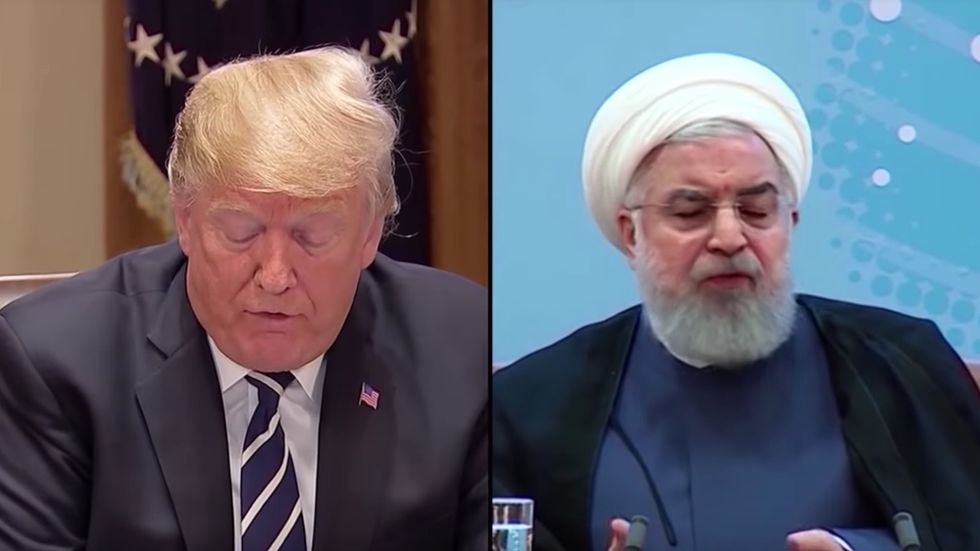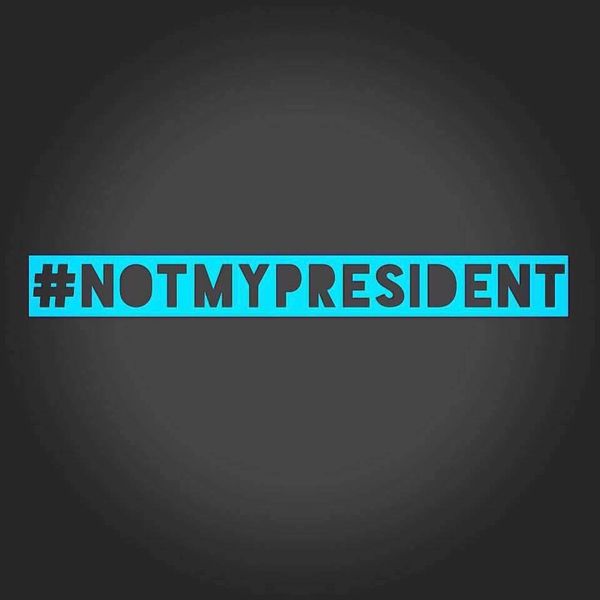Since the 2007 financial crisis, democracy across the world have been in retreat. As the United States and other Western countries stagnate economically, authoritarianism calls ever more strongly. In already autocratic states, strongmen have only made conditions worse, like Xi Jinping in China, Kim Jong Un in North Korea and Vladimir Putin in Russia.
To make matters worse, U.S. President Donald Trump has fairly good relationships with all three of those men.
Around the globe, Trump has sought to soothe relations with autocrats, which many have said has emboldened them and their imitators in other countries. But there is one nation with which Trump has been unwavering in his criticism: Iran. Even as he has opened the possibility of a nuclear deal with North Korea, he has ripped up the deal that the previous administration had made with Iran. Last Monday, the leader of the free world threatened on Twitter that Hassan Rouhani would "SUFFER CONSEQUENCES" after the Iranian president said (very menacingly!) that "peace with Iran is the mother of all peace, and war with Iran is the mother of all wars."
It isn't uncommon for a world leader to threaten war with the United States as a way of posturing to his citizens. But before Trump took office, it was virtually unheard of for the U.S. president to even acknowledge such threats. And, as a point of technicality, Rouhani wasn't waving around a declaration of war; he was requesting that the U.S. not wade into another Middle Eastern quagmire, which hardly needed to be said to most Americans.
Rouhani's comments are reflective of Iran's broader position in Middle Eastern geopolitics. Since the Islamic revolution of 1979, Iran has sought to get its fingers into as many regional affairs as possible in an effort to assert its legitimacy. But after decades of weaseling its way to being the foremost Shia Muslim country, Iran's foreign policy elite are more fearful than ever of their position in the region than ever. Compared with Saudi Arabia, its Sunni-majority archrival, Iran is far less connected with its allies; it is hard to imagine the Islamic Republic pulling off a multilateral blockade of one of its neighbors like the Saudis did with Qatar.
This is what makes the American preference for Saudi Arabia so confusing. A more rational actor might side with the weaker rival, which would be Iran. Additionally, America has few cultural ties with either nation, but there are more Iranian Americans than residents from the kingdom. Neither is a particularly democratic state, but Iran has an elected president who submits decisions to a religious leader, who executes them, whereas the Saudi royalty is all-powerful.
Iran does, however, run with the grain of countries Trump does not like. His affection for Putin is well-documented; he has an on-again, off-again friendship with Xi. After a war of words with Kim, the North Korean leader invited the American president to a nuclear disarmament summit, which Trump accepted.
All of these countries have one thing in common: they are run by strongmen whose authority is never questioned. Under Crown Prince Mohammed bin Salman, Saudi Arabia fits this pattern.
Iran, on the other hand, is more complex, with multiple actors at play in any one decision made. Its Ayatollah, Ali Khamenei, is selected by the religious community, while the president is elected by the people. The Revolutionary Guard Corps, Iran's powerful paramilitary force, may also have a say in decision-making. There is also an elected, quasi-parliamentary Consultative Assembly, but as its name suggests, it wields little actual power.
The Trump administration's posture towards autocracies is awkward at best, but the easiest explanation for it seems to be little more than that Trump likes things simple. It's easy to hold a joint press conference with Vladimir Putin for no reason, but who does he call when he wants to address human rights abuses (OK, more like the next Trump hotel) in Iran? Is Rouhani the top authority? Khamenei? Maybe the head of the Guard Corps? This preference for simplicity may explain what some have called Trump's authoritarian tendencies.
Iran is not an ally, but it could become more of a partner in the fight against terrorism in the Middle East or protecting U.S. allies from real threats like Chinese and Russian influence.
What is needed is a more frank assessment of Iran's actual position and its capacity as a player within the U.S.'s sphere of influence.




















